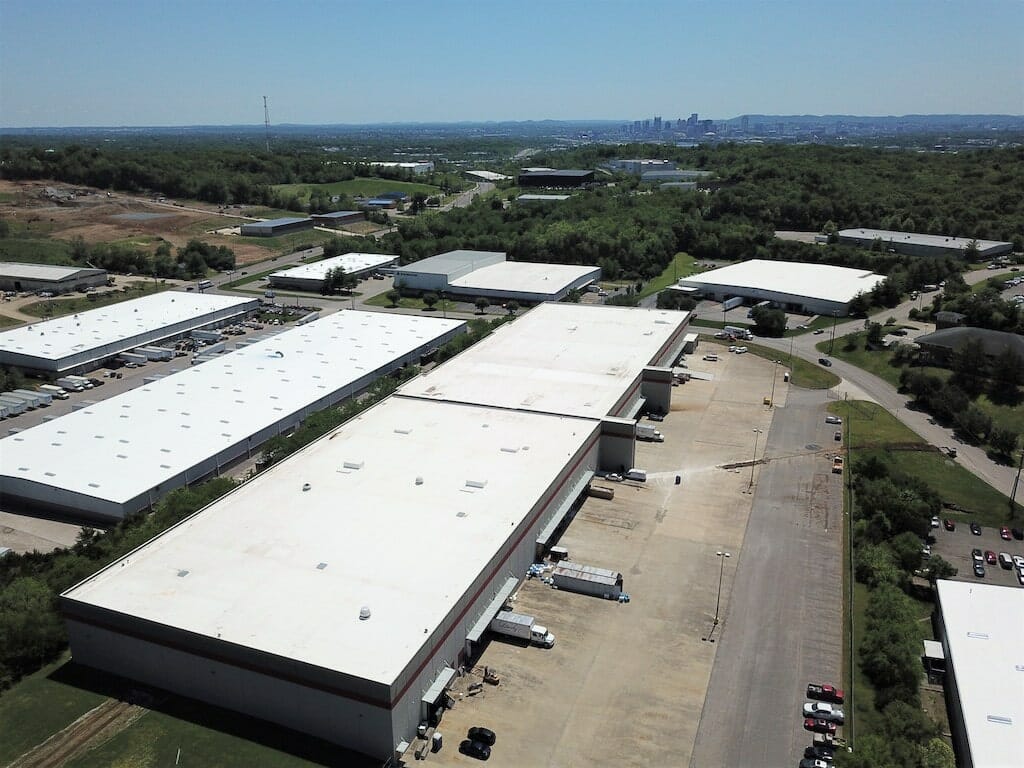Industrial roofs have been known to take a beating, as manufacturing and other industrial activity can put a strain on certain types of roofing materials. Thus, industrial building owners need to put some extra thought into how they design their roofs.
Before they can break ground on new construction projects, industrial building owners must figure out what kind of roof they desire. Here, we examine the different types of roofing materials and commercial roofing systems available for industrial buildings.
Built-Up Roofing (BUR)
Built-up roofs have been around for more than a hundred years and are one of the most common types of roofing materials seen on commercial buildings today. Built-up roofs use layers of fabric sandwiched between layers of asphalt to create a waterproof and durable surface. To protect them from the sun, built-up roofs are covered in gravel or asphalt.
Built-up roofs offer excellent protection from punctures and are well-insulated for energy efficiency, but they are also expensive and can be dangerous to install. It is uncommon for new construction projects to feature a built-up roof.
EPDM Roofing
EPDM stands for ethylene propylene diene terpolymer, but it is more commonly known as rubber roofing. EPDM roofing is usually the most cost-effective option for a commercial roofing system. However, because they are prone to punctures and damage from extreme temperatures, EPDM roofs may not be the best solution for some industrial buildings. EPDM roofs are also prone to chemical contamination, which will eat away at the membrane.
PVC Roofing
Another good single-ply roof membrane to use on industrial roofs is PVC roofing. PVC roofing materials are highly durable and offer longevity. With fire retardant properties, a PVC roof’s membrane is flame tested and works to self-extinguish flames, in contrast to TPO and EPDM membranes that can continue to burn, spread, and melt. PVC roofing is also moisture, chemical, puncture, and wind resistant in addition to being highly energy efficient. A downside of PVC roofing is that it often comes with higher up-front materials costs.
Metal Roofing
When it comes to durability, metal roofing can’t be beat. Metal roofing systems can last up to 70 years and will hold up to almost anything. For building owners who want their business to stand out, metal roofs also provide a unique look compared to most drab commercial roofs. The main disadvantage of metal roofing is its hefty price tag. The materials and labor to install a metal roof can be expensive, and the roof can also require additional insulation.
There are a few other considerations beyond types of roofing that industrial building owners should consider when choosing a commercial roofing system:
Flat or Slope?
The vast majority of industrial buildings have flat or low-slope roofs. Low-slope roofs require less maintenance and can hold rooftop equipment. However, slope roofs do come with some advantages. Slope roofs are more cost-effective, and they are significantly more pleasing to the eye than flat roofs. Slope roofs also naturally drain water, while low-slope roofs require the installation of drainage systems. Though many industrial buildings will require a low-slope roof, some building owners may want to consider the advantages of going with a slope.
Cost-Effectiveness
There is no way around it: a new industrial roof can be expensive no matter what you do. Even using the cheapest materials and finding the lowest cost labor, a new industrial roof is still going to carry a high sticker price. Since they will be spending big money no matter what, building owners should consider the long-term cost of their roof. Skimping on a cheaper roof that won’t hold up over time is less cost-effective in the long run.
Energy Efficiency
The material and insulation used on a new roof can have a big impact on the eventual energy efficiency of a building. Industrial building owners concerned about energy costs should factor efficiency into the design of their roof.
Considering new roof construction this year for your industrial facility? Contact today to discuss your many options!

